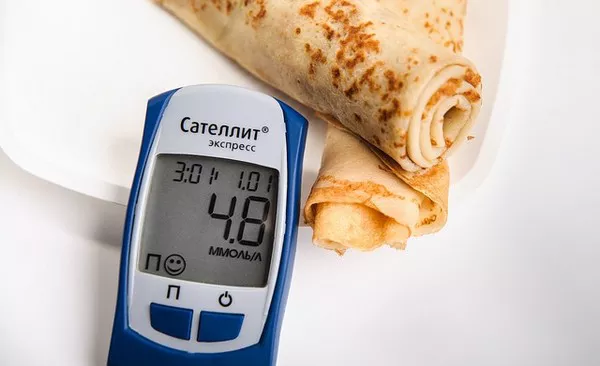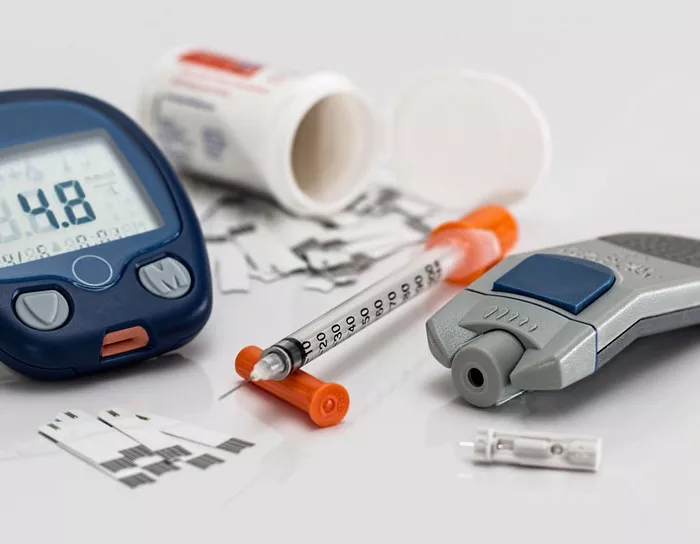Hypoglycemia, characterized by abnormally low blood glucose levels, is a condition often associated with diabetes and its management. However, the relationship between hypoglycemia and the onset of diabetes is complex and multifaceted. This article delves into the intricacies of hypoglycemia, explores its potential connection to the development of diabetes, and provides a comprehensive overview of how these conditions are interrelated.
Understanding Hypoglycemia
Hypoglycemia occurs when blood glucose levels fall below normal ranges, typically defined as less than 70 mg/dL (3.9 mmol/L). It can result from various factors, including medication side effects, inadequate food intake, or excessive physical activity. While hypoglycemia is a common concern for individuals with diabetes, it can also occur in people without diabetes under certain circumstances.
Causes of Hypoglycemia
Hypoglycemia can be triggered by several factors, including:
Medications: For individuals with diabetes, insulin and certain oral hypoglycemic agents (e.g., sulfonylureas) can cause blood glucose levels to drop too low.
Inadequate Food Intake: Skipping meals or not consuming enough carbohydrates can lead to low blood sugar levels.
Excessive Physical Activity: Intense or prolonged exercise can deplete glucose stores and cause hypoglycemia.
Alcohol Consumption: Drinking alcohol, especially on an empty stomach, can interfere with glucose production and lead to hypoglycemia.
Medical Conditions: Certain medical conditions, such as adrenal insufficiency or severe liver disease, can contribute to hypoglycemia.
Symptoms of Hypoglycemia
Symptoms of hypoglycemia can vary in severity and may include:
Mild Symptoms: Shakiness, sweating, irritability, dizziness, and hunger.
Moderate Symptoms: Difficulty concentrating, confusion, blurred vision, and weakness.
Severe Symptoms: Loss of consciousness, seizures, and unresponsiveness.
The Link Between Hypoglycemia and Diabetes
While hypoglycemia is commonly associated with diabetes, it is not necessarily an indicator of the beginning of diabetes. Understanding the role of hypoglycemia in relation to diabetes requires a closer look at how these conditions interact.
Hypoglycemia in Diabetes Management
For individuals with diabetes, hypoglycemia is often a consequence of treatment, particularly when insulin or other glucose-lowering medications are used. Proper management of diabetes involves balancing medication, diet, and lifestyle to prevent both hyperglycemia and hypoglycemia.
Insulin Therapy: Excessive insulin or incorrect dosage can lead to low blood sugar levels.
Oral Medications: Medications like sulfonylureas stimulate insulin release and may cause hypoglycemia if not managed carefully.
Diet and Exercise: Inadequate carbohydrate intake or intense physical activity can increase the risk of hypoglycemia.
Hypoglycemia and Risk of Developing Diabetes
Hypoglycemia itself is not a direct precursor to diabetes; however, there are nuances in how these conditions relate:
Reactive Hypoglycemia
Reactive hypoglycemia, also known as postprandial hypoglycemia, occurs when blood glucose levels drop after eating. It is not a form of diabetes but can indicate an underlying issue with glucose metabolism. Individuals with reactive hypoglycemia may be at a higher risk of developing type 2 diabetes if they have other risk factors such as obesity or insulin resistance.
Insulin Resistance and Hypoglycemia
Insulin resistance, a condition where the body’s cells become less responsive to insulin, can contribute to both hyperglycemia and hypoglycemia. Insulin resistance can lead to periods of elevated blood glucose followed by rapid drops, causing hypoglycemic episodes. Insulin resistance is a significant risk factor for the development of type 2 diabetes.
Pre-diabetes and Hypoglycemia
Pre-diabetes is characterized by elevated blood glucose levels that are not high enough to be classified as diabetes. Individuals with pre-diabetes may experience fluctuations in blood sugar, including episodes of hypoglycemia. Managing pre-diabetes effectively can help prevent the progression to type 2 diabetes.
Diagnosing Hypoglycemia and Diabetes
Accurate diagnosis of hypoglycemia and diabetes involves a combination of clinical evaluation, patient history, and laboratory tests.
Diagnostic Criteria for Hypoglycemia
Diagnosis of hypoglycemia typically involves:
Blood Glucose Measurement: Confirming low blood glucose levels during symptomatic episodes.
Clinical Evaluation: Assessing symptoms and potential triggers of hypoglycemia.
Continuous Glucose Monitoring (CGM): Tracking glucose levels over time to identify patterns and potential causes of hypoglycemia.
Diagnostic Criteria for Diabetes
Diagnosis of diabetes is based on several criteria, including:
Fasting Plasma Glucose (FPG): A fasting blood glucose level of 126 mg/dL (7.0 mmol/L) or higher.
Oral Glucose Tolerance Test (OGTT): A two-hour blood glucose level of 200 mg/dL (11.1 mmol/L) or higher after consuming a glucose solution.
Hemoglobin A1c (HbA1c): An HbA1c level of 6.5% or higher indicates diabetes.
Random Plasma Glucose Test: A random blood glucose level of 200 mg/dL (11.1 mmol/L) or higher with symptoms of diabetes.
Managing Hypoglycemia and Preventing Diabetes
Effective management of hypoglycemia involves both immediate treatment and long-term strategies to prevent recurrence. Additionally, addressing risk factors for diabetes can help prevent the onset of the disease.
Immediate Treatment of Hypoglycemia
For acute hypoglycemic episodes, prompt treatment is essential:
Consume Fast-Acting Carbohydrates: Ingest 15-20 grams of glucose or simple carbohydrates (e.g., glucose tablets, fruit juice) to raise blood sugar levels quickly.
Recheck Blood Sugar: Monitor blood glucose levels 15 minutes after treatment to ensure they have returned to normal.
Follow Up: Consume a small meal or snack to stabilize blood sugar levels and prevent recurrence.
Long-Term Management and Prevention
To manage hypoglycemia effectively and reduce the risk of developing diabetes:
Monitor Blood Glucose: Regularly check blood glucose levels to identify and address patterns of hypoglycemia.
Adjust Medications: Work with a healthcare provider to adjust medication dosages and prevent hypoglycemic episodes.
Healthy Diet: Follow a balanced diet that includes complex carbohydrates, lean proteins, and healthy fats to maintain stable blood sugar levels.
Regular Exercise: Engage in regular physical activity to improve insulin sensitivity and support overall metabolic health.
Weight Management: Achieve and maintain a healthy weight to reduce the risk of insulin resistance and type 2 diabetes.
Education and Support: Seek education and support from healthcare professionals to manage diabetes effectively and prevent complications.
The Role of Healthcare Providers
Healthcare providers play a crucial role in diagnosing, managing, and preventing hypoglycemia and diabetes. Collaboration between patients and healthcare professionals is essential for effective care.
Patient Education
Education on managing blood glucose levels, recognizing symptoms of hypoglycemia, and making healthy lifestyle choices is vital for individuals at risk of or managing diabetes.
Regular Monitoring and Follow-Up
Regular monitoring of blood glucose levels, medication adjustments, and follow-up appointments are essential for managing diabetes and preventing complications.
Multidisciplinary Care
A multidisciplinary approach involving endocrinologists, dietitians, diabetes educators, and other healthcare professionals can provide comprehensive care and support for individuals with diabetes or at risk of developing diabetes.
See also: When to Give D50 for Hypoglycemia
Conclusion
Hypoglycemia is a significant concern for individuals with diabetes and can occur for various reasons, including medication effects, dietary factors, and physical activity. While hypoglycemia itself is not a direct precursor to diabetes, it is often associated with conditions that increase the risk of developing diabetes, such as insulin resistance and pre-diabetes. Managing hypoglycemia effectively and addressing risk factors for diabetes through lifestyle changes, medication management, and regular monitoring can help prevent the onset of type 2 diabetes and improve overall health. Collaboration with healthcare providers and ongoing education are key components of successful diabetes management and prevention.
Related topics:
Is Reactive Hypoglycemia Serious?

























